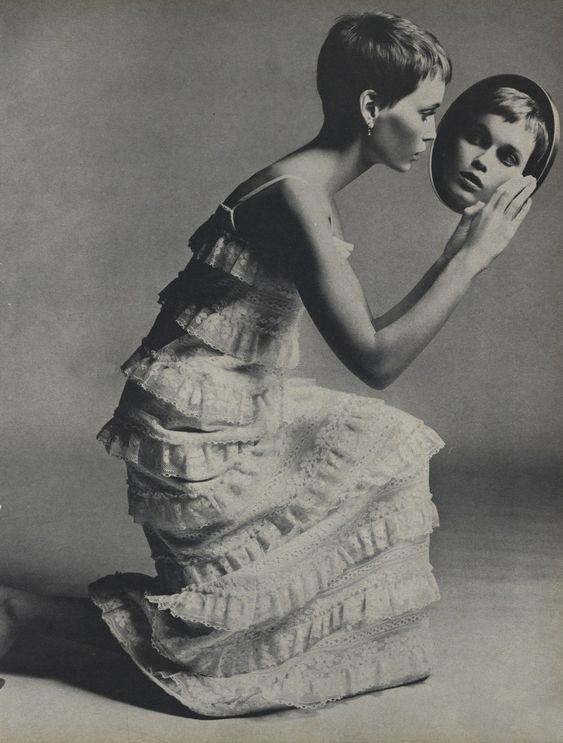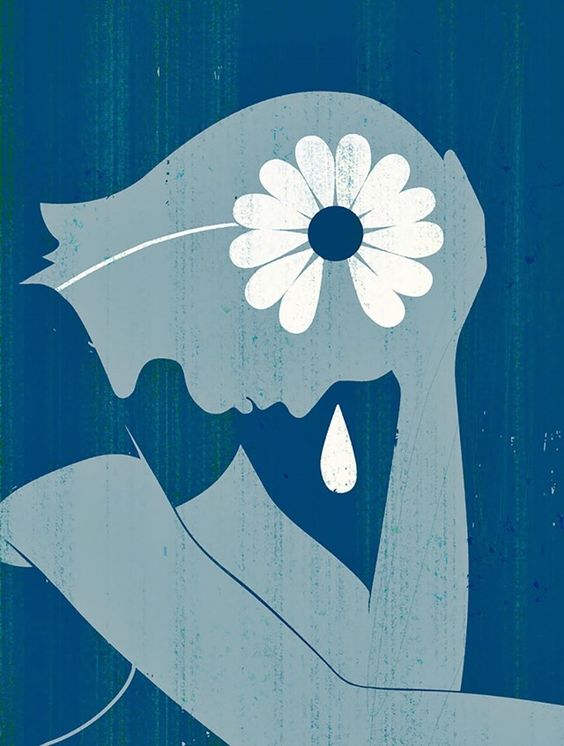
Venus-Saturn’s Lessons: Walls Down, Love Up
 Venus conjunct, square or opposite Saturn, these aspects often carve out a complicated emotional landscape where one might feel unlovable, or perhaps worse, unsure of how to be loved without conditions or performance. You see, Saturn, with all his rules and regulations, brings a bit of tough love to the Venus. “Yes,” he says, “you can have love, but first you must earn it.” And so begins the journey of those who carry these aspects in their chart—the sense that love is a transaction, to be bartered for through perfection, good behaviour, or, more tragically, self-denial. It’s no wonder people with Venus-Saturn aspects often wrestle with feelings of unworthiness. The lesson isn’t about external validation at all. Saturn’s true gift is the understanding that love is not a commodity. It’s not something you acquire through suffering or sacrifice. It’s a birthright. It’s already within, waiting to be realized.
Venus conjunct, square or opposite Saturn, these aspects often carve out a complicated emotional landscape where one might feel unlovable, or perhaps worse, unsure of how to be loved without conditions or performance. You see, Saturn, with all his rules and regulations, brings a bit of tough love to the Venus. “Yes,” he says, “you can have love, but first you must earn it.” And so begins the journey of those who carry these aspects in their chart—the sense that love is a transaction, to be bartered for through perfection, good behaviour, or, more tragically, self-denial. It’s no wonder people with Venus-Saturn aspects often wrestle with feelings of unworthiness. The lesson isn’t about external validation at all. Saturn’s true gift is the understanding that love is not a commodity. It’s not something you acquire through suffering or sacrifice. It’s a birthright. It’s already within, waiting to be realized.
People with these aspects might spend their youth feeling like they’ve been left out in the emotional cold, like love’s just a bit out of reach. Relationships can be fraught with boundaries—often too many, creating isolation. But the key, as Saturn would have it, is to build a strong inner foundation first. These aspects can cause one to seek validation from the outside world, using others’ opinions as a mirror for self-esteem. But here’s the turning point: when you stop seeking approval from others, when you drop the belief that love is earned or conditional, Saturn reveals his final lesson. Love is something to be anchored within yourself first. It’s the kind of love that says, “I am enough.”
In relationships, these individuals will find their deepest growth when they realize they don’t need to mould themselves into a shape that pleases others, nor do they need to control love with rules and timelines. It’s about finding the balance—letting Venus express her warmth, her joy, her need for connection, while allowing Saturn to provide healthy boundaries, protection, and self-respect. The journey with Venus and Saturn isn’t easy—it’s one of peeling back layers of old conditioning, inherited beliefs, and the healing of past rejections. But for those willing to do the work, the reward is not just love from others, but a kind of love for themselves that cannot be shaken by external events.
These individuals carry a heightened sensitivity to rejection. The inner monologue goes something like: Oh, they didn’t respond to my message with quite the level of enthusiasm I expected—clearly, I am unworthy of love. Now, the Saturnine trick of constructing emotional fortresses is both a blessing and a curse. These walls are built brick by brick, each one a memory of past slights, disappointments, or perceived failures. On the one hand, these defenses provide a sense of control, a way of keeping heartache at bay, of maintaining order in the chaotic realm of human emotions. But, on the other hand, they also keep joy, connection, and spontaneity locked out in the cold.
Emotional intimacy is a threat because, to truly connect, one must risk being seen—and being seen means possibly being rejected. What’s tragic, yet understandable, is that this guardedness often leads to the very isolation they fear. By keeping people at arm’s length, by scrutinizing potential partners with Saturn’s particular eye for value, they create a barrier to the love and closeness they so deeply crave. They become love’s gatekeepers, standing vigil, only allowing those who pass an impossibly high bar to enter. But by keeping love on such tight rein, they miss the wild, unrestrained nature of it. Venus wants to flow, to connect, to express without conditions—but Saturn says, “Wait, prove it first.”
When it comes to expressing affection, they yearn for spontaneity, but it feels difficult, as if every touch, every kiss must first be filtered through a lens of duty, responsibility, or self-consciousness. In moments where love should come easily, they may find themselves hesitating, wondering if their affection is being received as they intend. This hesitation creates distance, an invisible wall where warmth and joy should be. In their desire to protect themselves from rejection, they can overcompensate, becoming overly attentive, possessive even. It’s as if by pouring all their efforts into a relationship, they can secure love’s permanence.
Yet, this hyper-attentiveness often arises not from a place of genuine security, but from fear. Fear that the other person’s love may not be real, that it could be taken away at any moment. The journey for those with this aspect is one of learning to loosen their grip—on themselves, on others, and on the idea that love must be earned through sacrifice or struggle. It’s about dismantling those emotional barricades, brick by brick, and allowing the unpredictable, messy, but ultimately beautiful experience of connection to enter unfiltered. They must come to terms with the reality that vulnerability is not a weakness, but a strength. It’s in allowing themselves to be open, imperfect, and seen that they’ll find the very security they’ve been searching for.
Venus square or opposite Saturn gifted these individuals front-row seats to the eternal drama of “Am I lovable enough?” with an encore performance of “Let’s Overthink Every Little Thing.” It’s an exhausting ride through doubt and second-guessing.
The emotional baggage these individuals lug around is like a suitcase full of bricks, each one inscribed with phrases like unworthy, not enough, too much effort required. They don’t just carry the odd bit of self-doubt—they’ve practically packed for a year-long trip in Rejectionville. Every sideways glance, every critique, every lukewarm compliment is mentally filed away as evidence that maybe, just maybe, they’re not cut out for this “being loved” business. It’s not even about vanity or a need to be praised, mind you—it’s deeper, more insidious. It’s the sneaking suspicion that love, in all its warm, fuzzy, unconditional glory, is reserved for others and somehow bypassed them at birth.
So, what do they do? They build these emotional fortresses—strong, impenetrable, built with a Saturnine sense of duty and precision. Their hearts become fortified like medieval castles, complete with moats, drawbridges, and archers at the ready. Let someone try to get too close, and up goes the drawbridge, down go the shutters. It’s not that they don’t want love—they want it desperately. But opening up to love means risking rejection, and rejection is like stepping into emotional quicksand for these folks. The walls go up not because they don’t care, but because they care so deeply that they can’t bear the thought of being hurt.
Now, here’s where the overcompensation kicks in. It’s as if they feel they need to prove themselves worthy of the affection they so desperately crave. They’ll pour their heart and soul into a relationship, going above and beyond, smothering their partner in love, attention, and care. Not because they’re naturally clingy, but because they fear that if they don’t give everything, their partner might just walk away, confirming their deepest fear: that they were never really worth sticking around for in the first place. It’s a tragic cycle, really. The more they try to prove they’re worthy, the more it can come off as deeply insecure or possessive. And that, in turn, pushes people away, reinforcing their belief that they’re unlovable. You see, the issue isn’t that they lack the ability to love—it’s that they’ve internalized the idea that love, for them, comes with conditions. Constant reassurance, and the avoidance of any mistake that might make them seem less than desirable. But here’s the real truth—the suitcase they’re dragging around? It’s full of lies. The idea that they’re not lovable, not enough? It’s a story they’ve been telling themselves every time they feel vulnerable. And it’s a story they have the power to rewrite.
For those with Venus-Saturn aspects, love is risky, when these individuals interact with potential partners, especially with the opposite sex, there’s this awkwardness. It’s as if they’re playing a role they haven’t quite rehearsed—stiff, self-conscious, distant. Not because they don’t want to connect, but because connecting means cracking open that protective shell. And Saturn doesn’t make that easy. His voice is always in the background, urging caution, reminding them of past rejections, and warning them of future heartache.
When they’re not in a committed relationship, this fear can become even more pronounced. Loneliness, for them, feels like a concrete reality, a cold Saturnian fact of life. It’s not just a temporary state of being, but an eternal sentence: I’m alone, and I will always be alone. This belief becomes a sort of self-fulfilling prophecy, a mental prison. They believe no one will come, so they build higher walls, making it harder for anyone to get close. This isolation, however, only fuels their longing for affection even more intensely, creating a push-pull dynamic that’s both exhausting and heartbreaking.
Now, here’s where the fear starts to shape their actions in ways that can backfire. When they do find someone who sparks that glimmer of hope, they might desperately try to control them. The affection they crave becomes a need they try to fill compulsively. They want reassurance—constant, unrelenting reassurance—that they are loved, that they are enough, that they won’t be rejected. And this is where it gets tricky, because that need can become overwhelming for the other person. What started as a gentle desire for closeness turns into a tidal wave of expectation, and eventually, people might feel suffocated by the weight of it.
In an attempt to secure love, to anchor affection, they may resort to material gestures—gifts, dinners, fancy tokens of devotion. It’s their way of saying, Look, I can offer you something real, something of value—please stay. It’s a form of love, but it risks becoming transactional, business-like, as if love could be bought or bargained for. They measure their worth, not by their ability to open up emotionally, but by what they can do or give. This focus on material security can seep into the relationship, turning it into a well-structured arrangement rather than an organic, emotionally rich connection.
Saturn loves structure and goals, so naturally, in these relationships, careers, achievements, and practical matters often take precedence over the real essence of love—romance, seduction, passion. The spontaneity and joy that Venus craves get pushed to the back of the line because Saturn’s grip is so strong. These individuals might struggle to let their guard down, to let love flow without a plan, without control, without some sort of guarantee that everything will be safe and secure. And so, the true warmth of romance, the thrill of letting go and being vulnerable, can feel like an afterthought—or worse, a luxury they can’t afford.
What’s needed here is not more effort, more gifts, more practical demonstrations of worthiness. No, the real challenge for those with Venus-Saturn aspects is to let go of their fear. Easier said than done, of course, because Saturn’s grip is firm and unyielding. But the work begins in small, subtle ways. They must learn to sit with the discomfort of vulnerability, to lower those emotional walls even when it feels like the scariest thing in the world. Love, after all, is not something you earn or secure through effort. It’s not a prize for those who are perfect enough, organized enough, or successful enough. Romance, seduction, affection—these are not things that can be planned. They require risk. They require letting go of the fear that they’re not enough. They require believing that they deserve love, not because of what they do or give, but simply because of who they are.
These Venus-Saturn souls—they’re caught in a tug-of-war between craving love and being absolutely terrified of it. It’s as if they’ve invited love to dinner, only to slam the door shut as soon as it knocks. It’s not that they don’t want love; in fact, they ache for it. But they’re also haunted by this relentless fear that they’ll mess it all up. So they freeze up, stiff and awkward, like someone trying to dance but constantly checking their feet to make sure they don’t step on anyone else’s toes. And in doing so, they forget to actually enjoy the dance. They give off this vibe of being aloof, distant, and perhaps even a little cold.
But the truth? They’re just clinging to their defenses. The irony, of course, is that this very act of self-preservation—this stand-offish, guarded behavior—makes them appear uninterested or unapproachable. You can see the dilemma here, can’t you? They’re terrified of rejection, of being left standing in the emotional rain while the world carries on, warm and loved. So, they build these invisible fortresses, these towering walls of defensiveness. But the walls are so high, no one can scale them, even if they tried. The people who might want to get close, to offer love, end up standing outside in the cold, not sure how to approach. And the Venus-Saturn individual, from their fortress, interprets this distance as confirmation of their worst fear: See? They don’t really want me anyway. You see, because these folks have this deep, gnawing insecurity that they’re not lovable enough, they often try to earn love. But not in a carefree, joyful way—no, they pursue it with a kind of desperate intensity. They may not even realize they’re doing it, but that need for constant reassurance, that hunger for affection, can start to feel like a heavy burden on the other person. It’s like waving a big sign that says, “Please, love me—but also prove it constantly, or I’ll crumble.”
And what happens when people sense this? Well, they start to back away, because being around someone who is so emotionally insecure can feel overwhelming. And thus, the Venus-Saturn person’s worst fear—the fear of rejection—starts to become their reality. The very thing they were trying to avoid, starts to unfold before their eyes. It’s a self-fulfilling prophecy of the cruelest kind. Here’s the bitter twist: in their fear of being hurt, of being rejected or let down, they actually end up hurting themselves. By building walls and chasing affection with too much force, they create the very loneliness they were trying so hard to escape. They sabotage their own happiness, not out of malice, but out of fear—fear that love, if not constantly secured and checked, will slip away.
Despite all the walls, the awkwardness, and the fear, these individuals have a remarkable capacity for love that’s deeper and more enduring than they realize. Saturn may make them cautious, but he also makes them serious about love. And that’s no small thing in a world where many people flit in and out of relationships. When they do let someone in—when the walls come down and the vulnerability flows—they offer a love that is loyal, steadfast, and real. Saturn’s influence means they understand the value of commitment, the weight of responsibility, and the beauty of building something that lasts. They don’t take love lightly, and when they love, they love with their whole being. This is not the surface-level affection that fades when the going gets tough—this is the kind of love that stands the test of time, the love that weathers storms and grows stronger. And here’s the best part: as they learn to relax into love, to release their fears and know their worth, they’ll find that the connections they crave are not out of reach. They’re entirely possible, waiting just beyond the walls they’ve built. With every step they take towards openness, the universe will meet them halfway, offering opportunities for the deep, meaningful relationships they’ve always longed for. Their journey might start with fear, but it can end in the most beautiful, unshakeable love—one built on mutual trust, respect, and the realization that they’ve always been worthy of affection. They just needed to believe it themselves. And when they do? Well, that’s when the magic really begins.



















 Sun Square Pluto Synastry: You’ve Got That Power Over Me
Sun Square Pluto Synastry: You’ve Got That Power Over Me
 Scorpio’s Cold Withdrawal
Scorpio’s Cold Withdrawal
 Moon Conjunct Pluto Synastry
Moon Conjunct Pluto Synastry
 Venus-Pluto Synastry: A Love So Powerful That It Might Just Kill Them
Venus-Pluto Synastry: A Love So Powerful That It Might Just Kill Them
 Mars Square Pluto Natal Aspect: The Unbreakable Spirit
Mars Square Pluto Natal Aspect: The Unbreakable Spirit
 Mercury Conjunct Venus Synastry
Mercury Conjunct Venus Synastry
 Reflections on a Past Venus-Pluto Synastry Aspect
Reflections on a Past Venus-Pluto Synastry Aspect
 Mars-Pluto Synastry: Something Quite Dark and Dangerous
Mars-Pluto Synastry: Something Quite Dark and Dangerous
 Uranus Transits 8th the House: Rebirth from Chaos
Uranus Transits 8th the House: Rebirth from Chaos
 Mars-Saturn Synastry: The Eternal Loop
Mars-Saturn Synastry: The Eternal Loop
 Venus Trine Mars Synastry
Venus Trine Mars Synastry
 Mars in Aquarius: Sex drive
Mars in Aquarius: Sex drive
 Composite Sun in the 8th House: Weather the Storm
Composite Sun in the 8th House: Weather the Storm
 Venus Trine Pluto: Dark Desires
Venus Trine Pluto: Dark Desires
 Sun Conjunct Pluto Synastry: Enlightening or Annihilating
Sun Conjunct Pluto Synastry: Enlightening or Annihilating
 Mars Conjunct Pluto Synastry
Mars Conjunct Pluto Synastry
 Moon Opposite Uranus Natal Aspect
Moon Opposite Uranus Natal Aspect
 The Watery Gardeners: Cancer, Scorpio, and Pisces
The Watery Gardeners: Cancer, Scorpio, and Pisces
 Transiting Pluto Aspect Natal Mars: Are You Mad as Hell
Transiting Pluto Aspect Natal Mars: Are You Mad as Hell
 Moon Conjunct Pluto Natal Aspect: Emotional X-Ray Vision – Seeing Through Souls Since Birth
Moon Conjunct Pluto Natal Aspect: Emotional X-Ray Vision – Seeing Through Souls Since Birth